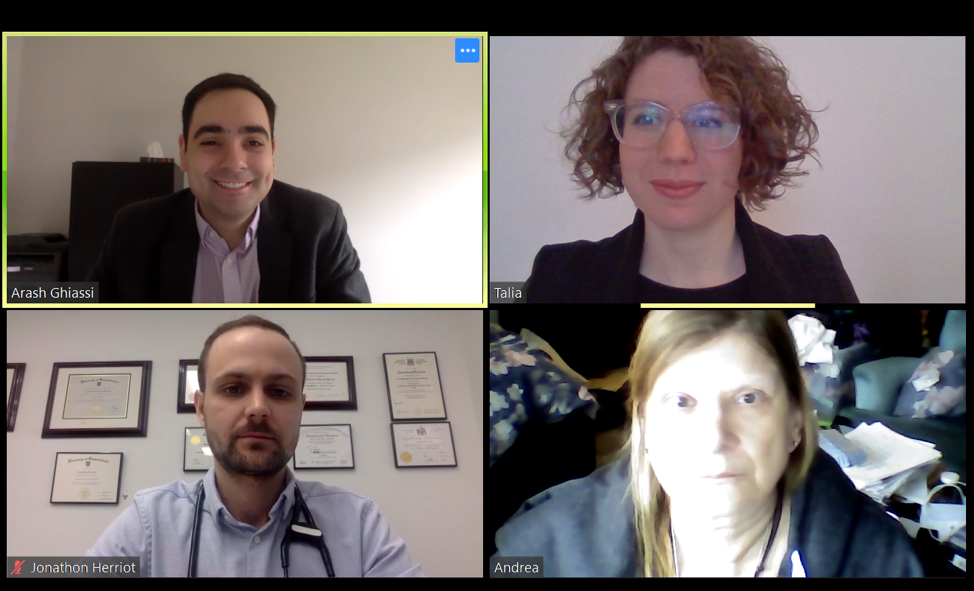Daily Bread Food Bank and over 130 organizations have issued an open letter calling for the government of Ontario to support low-income individuals during COVID-19 by increasing social assistance rates and stopping the clawback of federal benefits.
Speaking at a virtual press conference on April 8, Talia Bronstein, VP Research & Advocacy noted that food bank use is a barometer of poverty, and food bank use has risen sharply as a result of COVID-19.

Top left: Arash Ghiassi, Income Security Advocacy Centre, Bottom Left: Jonathon Herriot, Health Providers Against Poverty, Top Right: Talia Bronstein, Daily Bread, Bottom Right: Andrea Hatala, ODSP Action Coalition<
When the financial crisis of 2008 hit, food banks across Canada saw a 30% increase in visits. While we are still collecting data to understand the full impact of COVID-19 on food bank use, at the Daily Bread’s on-site food bank in Etobicoke, we have seen a 53% jump in visits in the past two weeks.
We continue to see familiar faces among those in deep poverty who rely on food banks as a stable source of food. Prior to COVID-19, social assistance recipients made up over 60% of food bank use. These are individuals who simply cannot afford food on a regular day, let alone during a crisis. Of those who received social assistance, 53% had been accessing food banks regularly for over 2 years, compared to only 42% of food bank clients with other income sources.
Now, we are seeing growth in a new group of food bank clients – the thousands of recently unemployed.
Food banks are caught up in a perfect storm. We are seeing escalating rates of food bank use, coupled by a diminished capacity to deliver food. One in three food banks in Toronto have shut down because they are run out of community spaces that have been mandated to close, or are run by seniors who are deemed high risk.
That leaves people on social assistance fewer options to access food, forcing them to travel further and ultimately put themselves, and those around them, at a higher risk.
Food banks are being stretched to a breaking point. We are trying to meet the everyday food needs of low-income Ontarians, rather than act as what we were set up to do – provide short-term food relief to tide people over when they faced an unexpected economic shock.
Poverty cannot be outsourced to charity. No one should be forced to rely on food banks long-term. By raising social assistance rates and eliminating federal benefit clawbacks, we can expect to see two immediately positive outcomes.
COVID-19 has been a shock to our systems, but it isn’t the first, and it won’t be the last. Increasing social assistance rates will enable recipients to have a greater degree of resiliency to weather life’s storms – both during and after this pandemic. This resiliency benefits us all. As COVID-19 has taught us, we are only are strong as our most vulnerable.